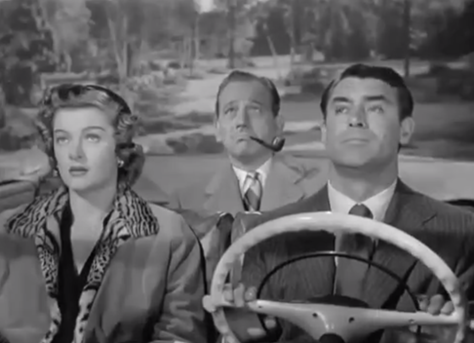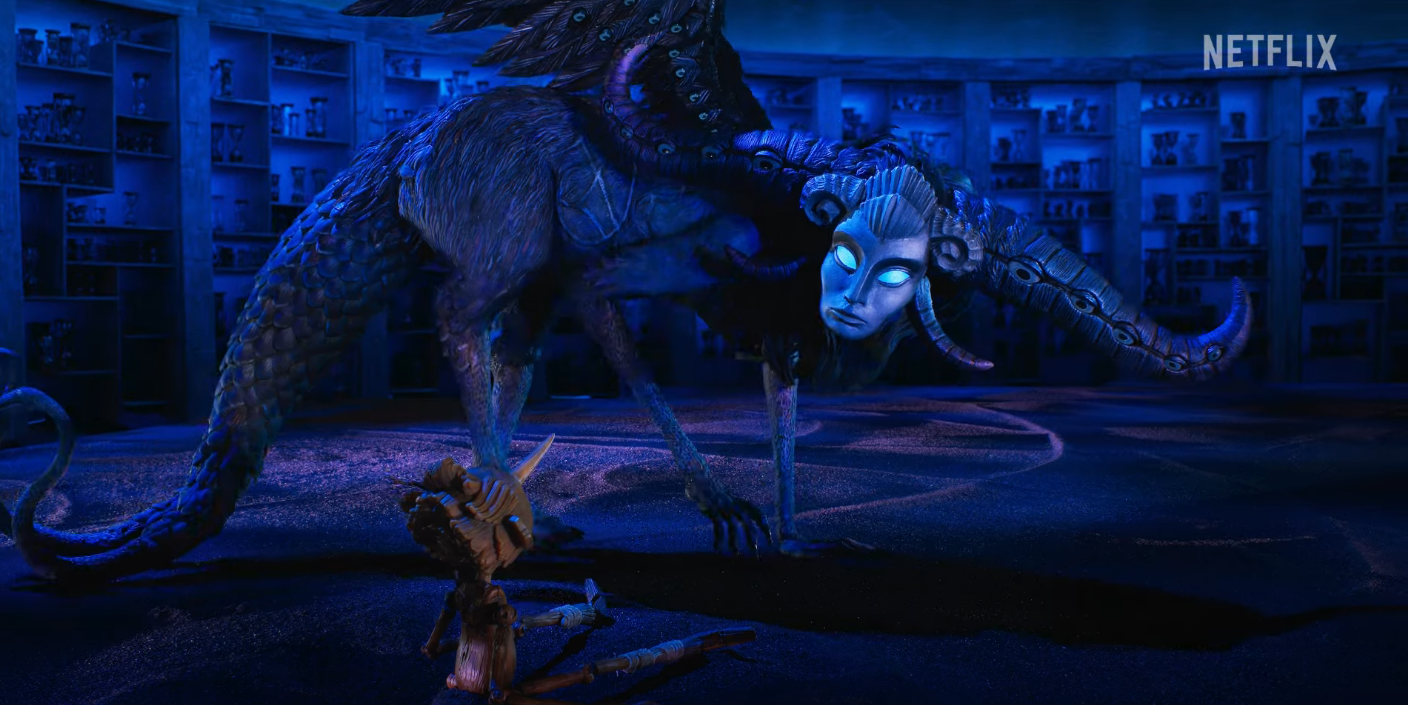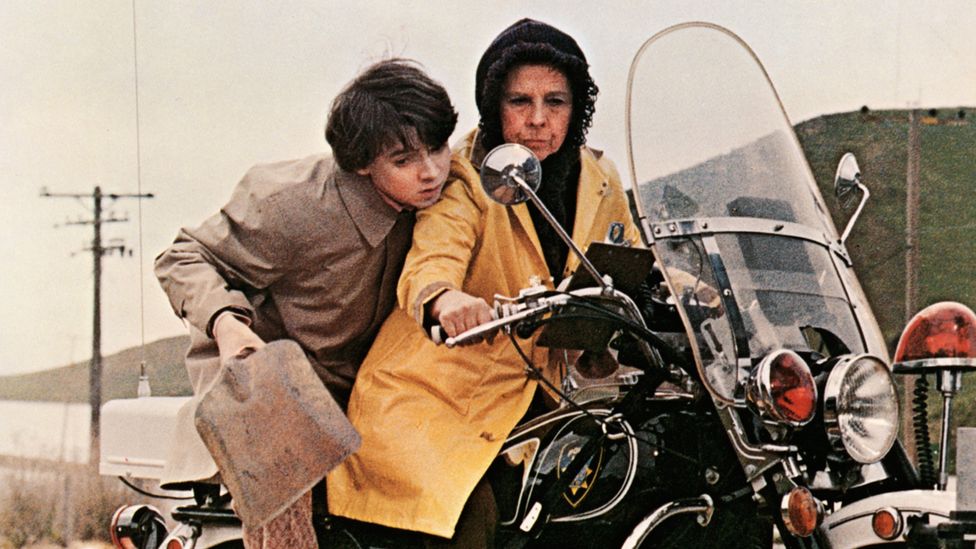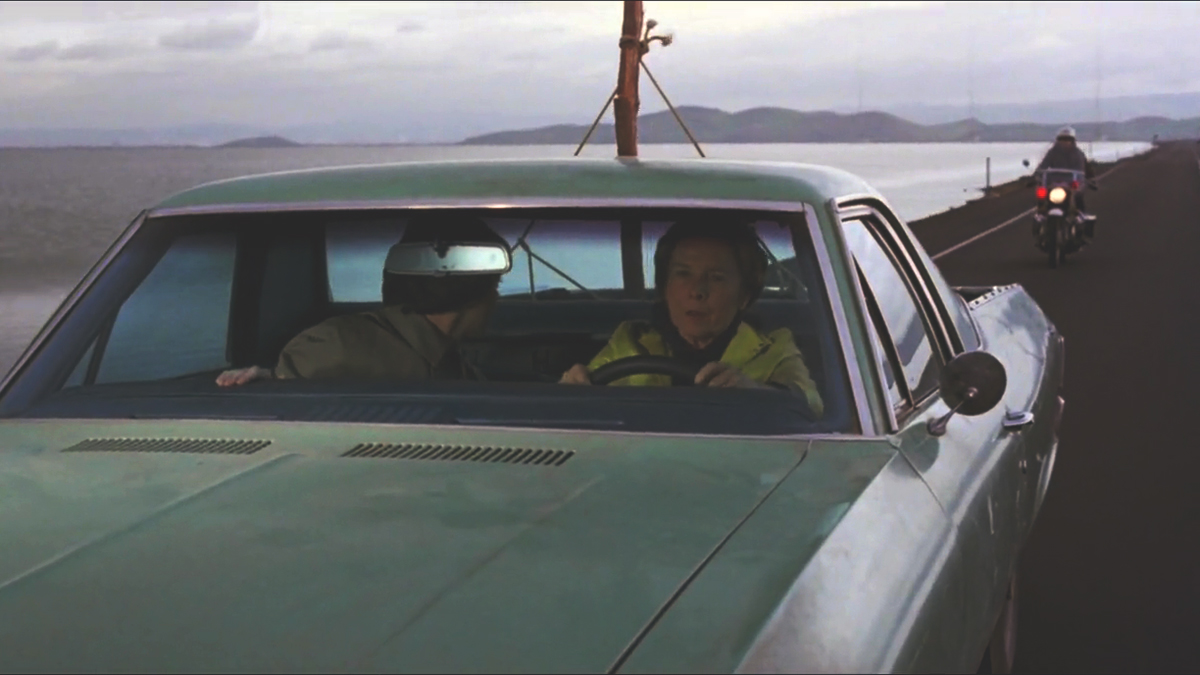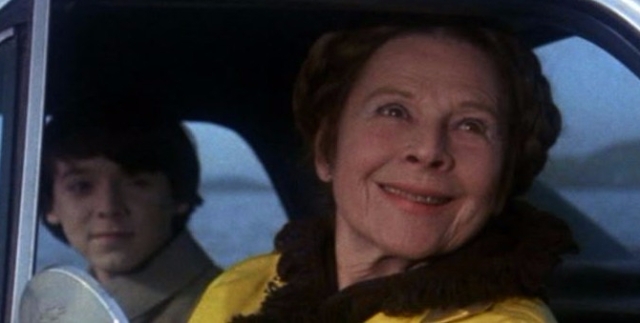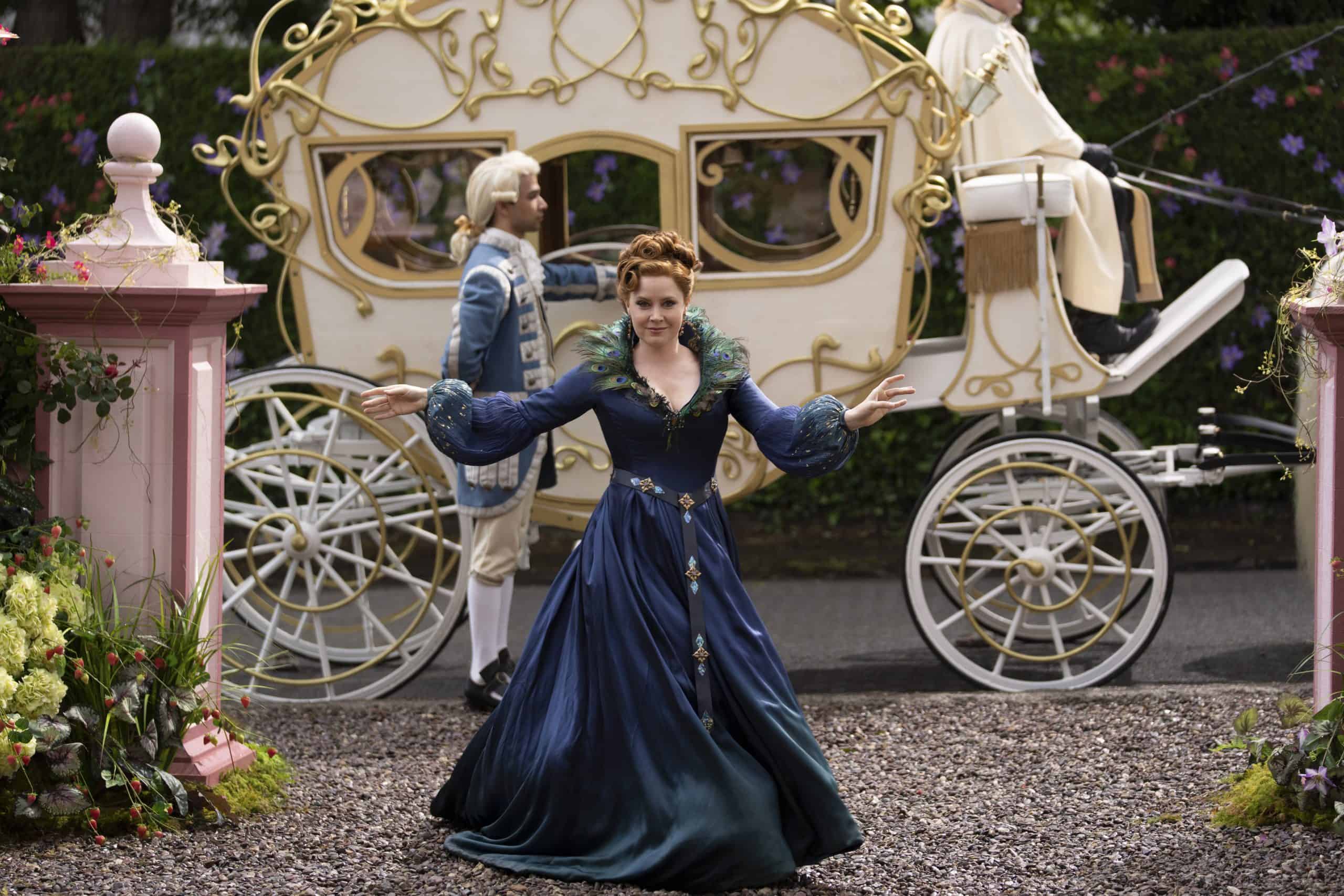Notoroious (1946)
Alfred Hitchcock scores a bullseye with 1946's Notorious, a sizzling spy thriller that never lets its story of international espionage get in the way of the white hot chemistry between the stars.

Three time Oscar winner Ingrid Bergman plays Alicia Huberman, a flighty and self absorbed party girl whose father has recently been convicted of being a Nazi spy, whose jumbled emotions about what happened to her father has her drowning her sorrows in booze and men. Cary Grant plays Devlin, a government agent who asks Alicia to participate in a mission to gather information on some scientists in Rio de Janeiro. Alicia's life is forever complicated and put in danger when one of these men, one Alexander Sebastian (Claude Rains) falls in love with her and proposes marriage, though Alicia's heart belongs to Devlin, who fights his feelings for Alicia as hard as he can.
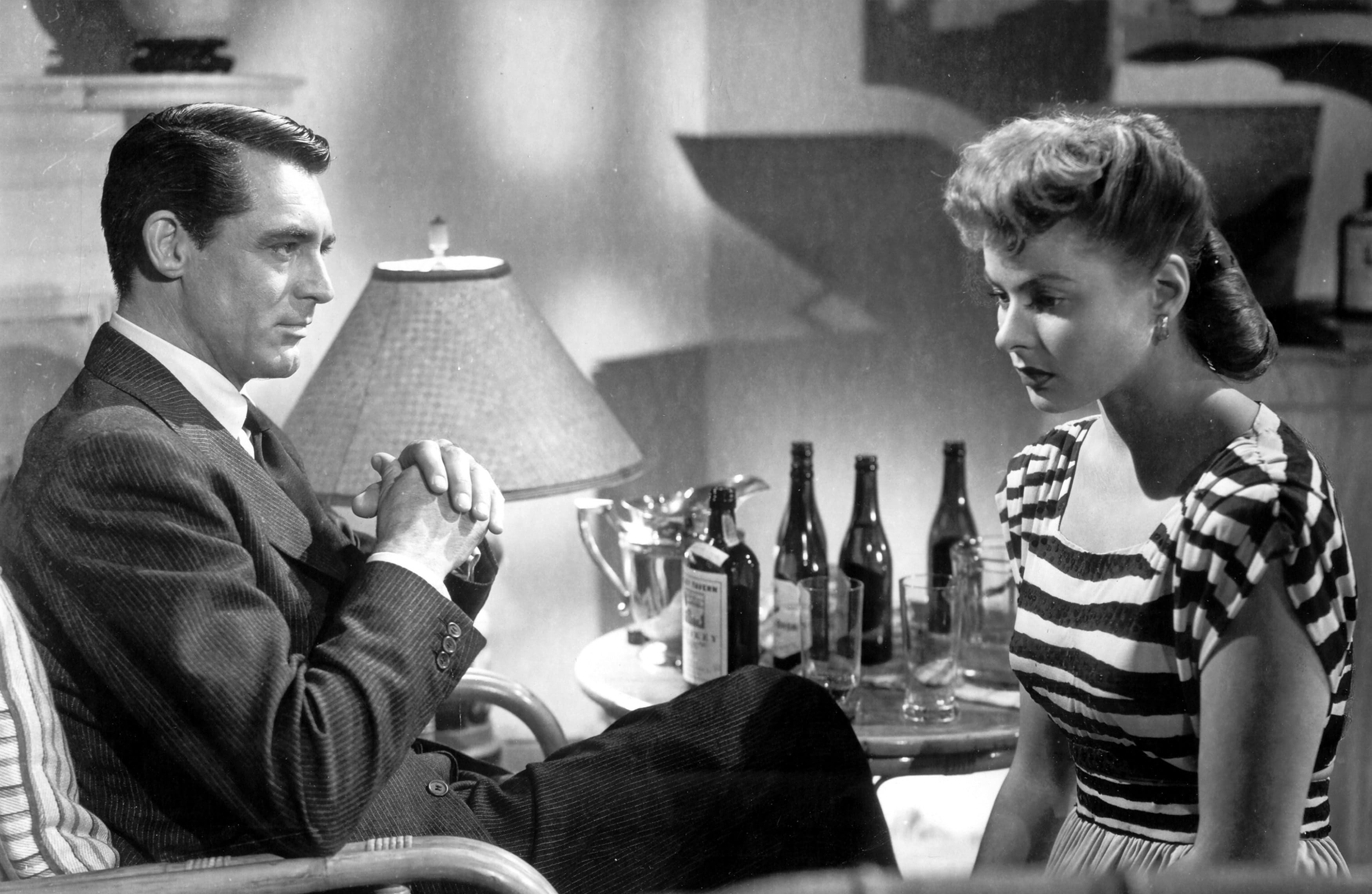
Ben Hecht's Oscar nominated screenplay is a perfect combination of spy thriller and romantic melodrama as a story that initially seems to be about spy hunting eventually wittles down to an intense romantic triangle that found this viewer more emotionally invested in the story than in the beginning. There are few things more appealing to film lovers than star-crossed lovers being kept apart for the majority of the running time and that's exactly what happens here. The attraction between Devlin and Alicia is swift and immediate but as the story progresses, we see them being pulled further and further apart until all we want is to see them in each other's arms where they belong.

Hitchcock's camera also becomes an instrumental storytelling device here as the camera guides the viewer in what they should be paying attention to and away from what isn't as important as we might think it is. There are scenes with actors reciting dialogue while the camera is following keychains and coffee cups, guiding us to what we should really be paying attention. I also loved the scene where Devlin and Alicia are looking for something in the wine cellar alternate with shots of a tray of champagne bottles dwindling away, possibly causing the butler, Joseph, to go down to the wine cellar to get more and when he and Sebastian do, what happens isn't even close to what we expect.
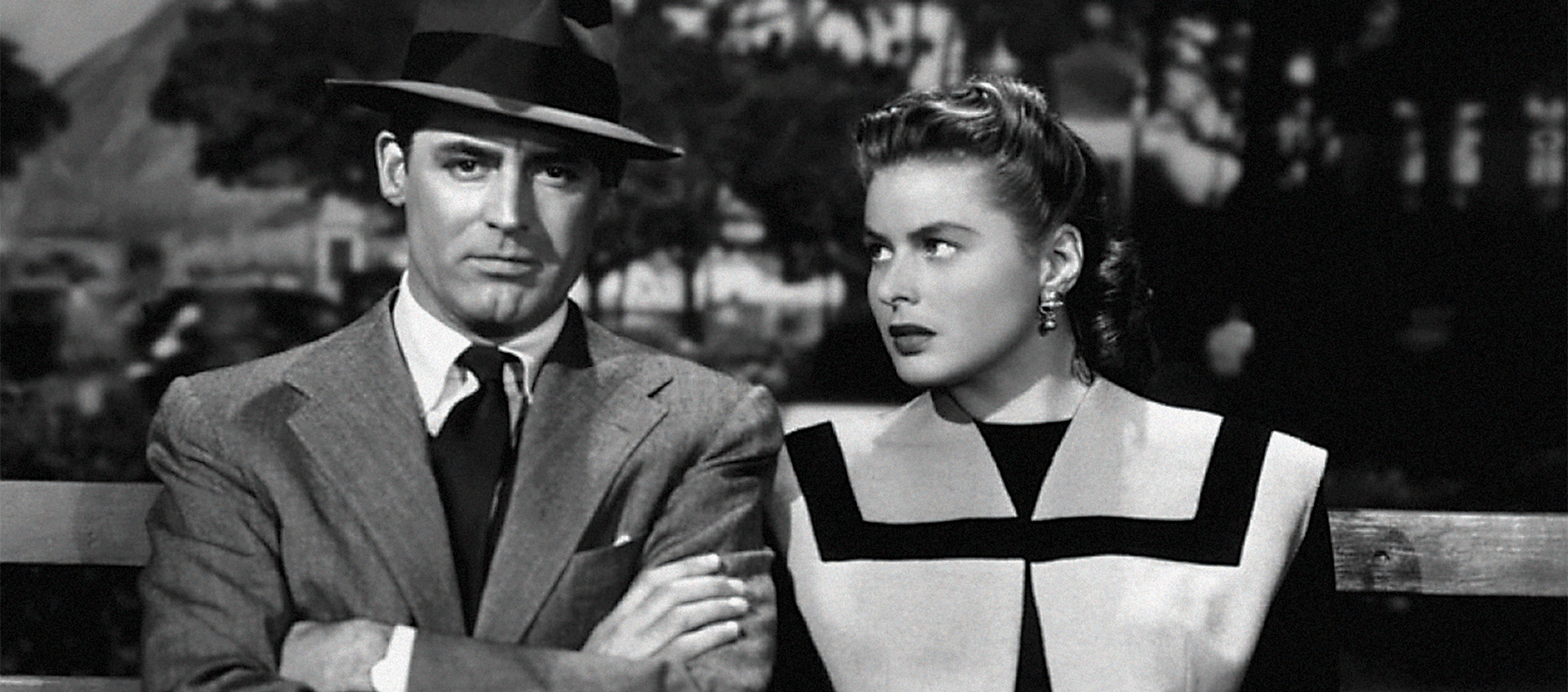
But what makes this film worth investing in is the incredible chemistry between Cary Grant and Ingrid Bergman which burns a hole in the screen. Every moment they spend onscreen together is so electric that we can't stand seeing them torn apart as the story progresses. The complexity of the Alexander character is also intriguing. He initially come off as the dangerously obsessed husband of Alicia initially arousing fear for Alicia, but is eventually revealed to be under the thumb of his mother, who really seems to wear the pants in the house, giving the Alexander character a pathetic quality, which evokes an element of sympathy into the character we really don't see coming.

Ingrid Bergman was robbed of a Best Actress Oscar nomination for her luminous performance as Alicia that lights up the screen. This character is smart and funny and lonely and vulnerable and Bergman captures all of it. I haven't seen a lot of Bergman's work, but of what I have seen, this is my favorite performance of hers. Cary Grant scores in one of his most cold-blooded characterizations. This guy buries his emotions and is all about his work, a character that is kind of foreign territory for Grant but he makes it work. Claude Rains earned one of his four Best Supporting Actor nominations for his richly intense Alexander Sebastian. Kudos as well to Louis Calhern as a fellow agent of Devlin's, Leopoldine Konstantin as Sebastian's mother, and Alexis Minotis as Joseph, the creepy butler. A classic that more than lived up to its reputation and probably one of Hitchcock's most underrated works.
Alfred Hitchcock scores a bullseye with 1946's Notorious, a sizzling spy thriller that never lets its story of international espionage get in the way of the white hot chemistry between the stars.

Three time Oscar winner Ingrid Bergman plays Alicia Huberman, a flighty and self absorbed party girl whose father has recently been convicted of being a Nazi spy, whose jumbled emotions about what happened to her father has her drowning her sorrows in booze and men. Cary Grant plays Devlin, a government agent who asks Alicia to participate in a mission to gather information on some scientists in Rio de Janeiro. Alicia's life is forever complicated and put in danger when one of these men, one Alexander Sebastian (Claude Rains) falls in love with her and proposes marriage, though Alicia's heart belongs to Devlin, who fights his feelings for Alicia as hard as he can.

Ben Hecht's Oscar nominated screenplay is a perfect combination of spy thriller and romantic melodrama as a story that initially seems to be about spy hunting eventually wittles down to an intense romantic triangle that found this viewer more emotionally invested in the story than in the beginning. There are few things more appealing to film lovers than star-crossed lovers being kept apart for the majority of the running time and that's exactly what happens here. The attraction between Devlin and Alicia is swift and immediate but as the story progresses, we see them being pulled further and further apart until all we want is to see them in each other's arms where they belong.

Hitchcock's camera also becomes an instrumental storytelling device here as the camera guides the viewer in what they should be paying attention to and away from what isn't as important as we might think it is. There are scenes with actors reciting dialogue while the camera is following keychains and coffee cups, guiding us to what we should really be paying attention. I also loved the scene where Devlin and Alicia are looking for something in the wine cellar alternate with shots of a tray of champagne bottles dwindling away, possibly causing the butler, Joseph, to go down to the wine cellar to get more and when he and Sebastian do, what happens isn't even close to what we expect.

But what makes this film worth investing in is the incredible chemistry between Cary Grant and Ingrid Bergman which burns a hole in the screen. Every moment they spend onscreen together is so electric that we can't stand seeing them torn apart as the story progresses. The complexity of the Alexander character is also intriguing. He initially come off as the dangerously obsessed husband of Alicia initially arousing fear for Alicia, but is eventually revealed to be under the thumb of his mother, who really seems to wear the pants in the house, giving the Alexander character a pathetic quality, which evokes an element of sympathy into the character we really don't see coming.

Ingrid Bergman was robbed of a Best Actress Oscar nomination for her luminous performance as Alicia that lights up the screen. This character is smart and funny and lonely and vulnerable and Bergman captures all of it. I haven't seen a lot of Bergman's work, but of what I have seen, this is my favorite performance of hers. Cary Grant scores in one of his most cold-blooded characterizations. This guy buries his emotions and is all about his work, a character that is kind of foreign territory for Grant but he makes it work. Claude Rains earned one of his four Best Supporting Actor nominations for his richly intense Alexander Sebastian. Kudos as well to Louis Calhern as a fellow agent of Devlin's, Leopoldine Konstantin as Sebastian's mother, and Alexis Minotis as Joseph, the creepy butler. A classic that more than lived up to its reputation and probably one of Hitchcock's most underrated works.
Last edited by Gideon58; 04-12-23 at 01:34 PM.














